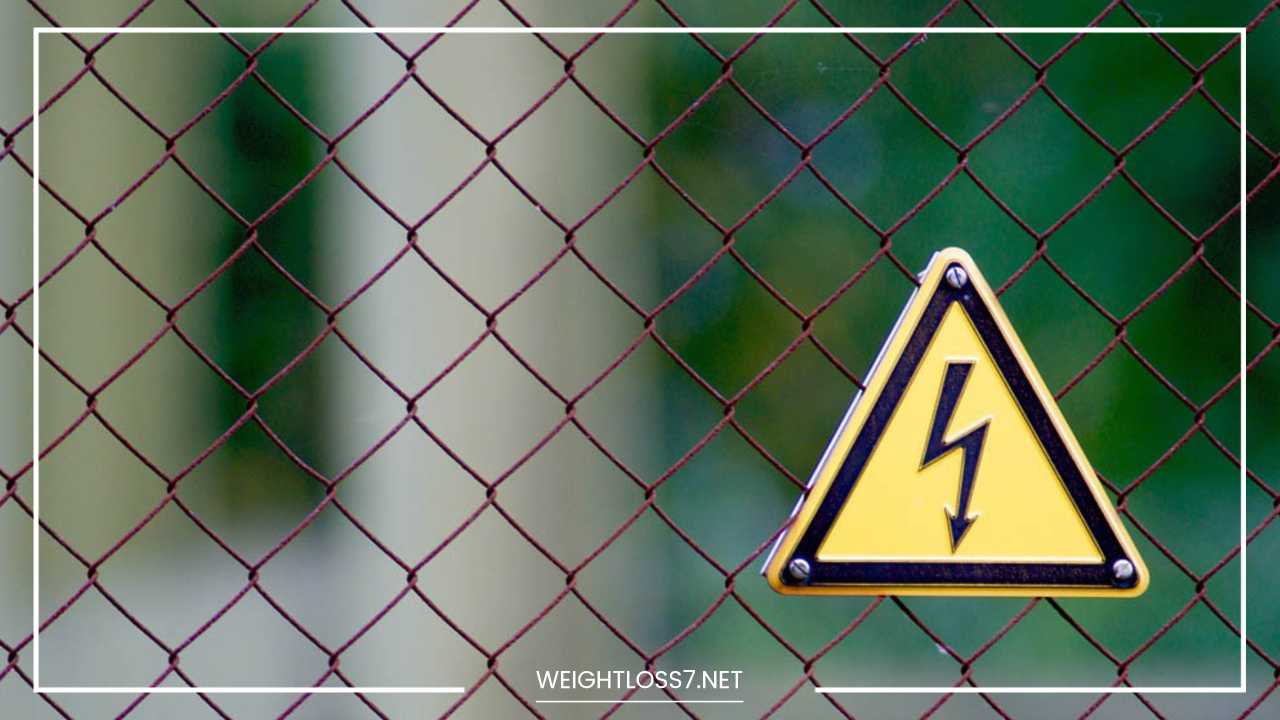Electrocution: Causes, Effects, and How to Prevent Electrical Shock

Electrocution
Understanding Electrocution: Safety Tips to Stay Charged Up, Not Shocked
Electricity. It’s the invisible force that powers our modern world, silently coursing through wires and lighting up our lives. Yet, for all its benefits, electricity also carries a hidden danger: the risk of electrocution.
Electrocution, the fatal disruption of bodily functions caused by electrical current, is a serious concern. While not as common as other accidents, it’s a stark reminder of the importance of electrical safety.
This comprehensive blog post delves into the world of electrocution, exploring its causes, effects, prevention strategies, and the sometimes-surprising situations where it can occur.
Demystifying Electrocution: How Electricity Becomes Deadly
Our bodies are excellent conductors of electricity. When we come into contact with a live wire or energized object, the current can travel through our tissues, disrupting vital electrical signals that control our muscles, nerves, and heart. Depending on the intensity and duration of the current flow, electrocution can cause:
- Muscle contractions: This can lead to difficulty breathing or even lockjaw, preventing the diaphragm from functioning properly.
- Disruption of the nervous system: This can cause loss of consciousness, confusion, and difficulty controlling movement.
- Cardiac arrest: Electrical current can interfere with the heart’s natural rhythm, potentially leading to a heart attack.
- Burns: Depending on the voltage and contact point, electrocution can cause severe burns on the skin and underlying tissues.
The severity of these effects depends on several factors:
- Voltage: Higher voltage currents are more likely to cause severe injury and death. Household outlets typically have 120 volts, while power lines carry thousands of volts, significantly increasing the risk of electrocution.
- Path of current: The path the current takes through the body plays a crucial role. Current passing through the heart or lungs is more dangerous than through an extremity.
- Duration of contact: The longer the contact with the electrical source, the more severe the injury.
- Individual factors: Age, overall health, and pre-existing medical conditions can influence the outcome of an electrocution incident.
Beyond the Headlines: Common Causes of Electrocution
Electrocution can occur in various situations, both at home and in the workplace. Here’s a closer look at some common culprits, along with additional scenarios you might not expect:
- Faulty electrical wiring: Old, damaged, or improperly installed wiring is a significant electrocution risk. This includes frayed cords, exposed wires, and overloaded outlets.
- Improper use of electrical appliances: Using appliances near water, neglecting to unplug before maintenance, and ignoring damaged cords are all potential hazards.
- Contact with power lines: Accidental contact with downed power lines, overhead cables, or working too close to them can be deadly.
- Lightning strikes: While rare indoors, lightning strikes can cause electrocution if a person comes into direct contact or is struck by a current traveling through conductive materials.
- Improper use of extension cords: Overloading extension cords, using them in place of permanent wiring, or neglecting to choose the appropriate gauge for the appliance can all lead to overheating and potential electrocution.
Unexpected Electrocution Risks:
- Dropped electronics in water: Dropping a phone or other electronic device into water while it’s plugged in creates a serious electrocution risk.
- Improper use of electrical tools outdoors: Using power tools in wet conditions or neglecting to check for damaged cords can be dangerous.
- Improvised electrical repairs: Attempting electrical repairs yourself without proper training or knowledge is a recipe for disaster.
- Chewed electrical cords: Pets chewing on electrical cords can expose live wires and create an electrocution hazard.
- Improper grounding: Improper grounding of electrical equipment, particularly in older homes, can increase the risk of electrocution.
The Aftermath: Recognizing and Responding to Electrocution
If you suspect someone has been electrocuted, it’s crucial to act quickly and safely:
- Turn off the power source: If possible, locate the source of the electricity and turn it off at the breaker box or by pulling the plug. Do not touch the victim or the electrical source directly. Use a non-conductive object like a wooden broom handle to remove the source from the victim if absolutely necessary.
- Call for emergency help: Dial emergency services immediately. Every second counts in an electrocution incident.
- Check for responsiveness: Gently tap the victim and ask loudly if they are okay.
- CPR: If the victim is unresponsive and not breathing, begin CPR (Cardiopulmonary resuscitation) if you are trained. Remember, providing CPR can significantly improve the victim’s chances of survival.
- Minimize further risk: Don’t move the victim unless they are in immediate danger from the electrical source and you can safely turn it off.
Staying Charged Up: Essential Electrical Safety Tips
Preventing electrocution is far better than dealing with its aftermath. Here are some essential electrical safety tips to keep you and your loved ones safe:
General Electrical Safety:
- Leave electrical work to the professionals: Don’t attempt electrical repairs or installations yourself. Always hire a licensed electrician for any electrical work in your home or workplace. This ensures the work is done correctly and according to safety codes.
- Inspect and replace cords regularly: Make a habit of checking appliance cords for damage like fraying, cracks, or loose connections. Replace damaged cords immediately. Don’t ignore minor tears or kinks, as they can worsen over time and become a safety hazard.
- Unplug appliances before servicing: Never work on a plugged-in appliance. Make sure it’s unplugged before cleaning, repairing, or replacing parts. This simple step significantly reduces the risk of accidental electrocution.
- Ground fault circuit interrupters (GFCIs): Install GFCIs in areas prone to moisture, like bathrooms, kitchens, and laundry rooms. GFCIs automatically cut off power when a ground fault occurs, which is a current leak that can lead to electrocution. Testing your GFCIs monthly with the test button ensures they are functioning properly.
- Water and electricity don’t mix: Never use electrical appliances near water sources, and avoid touching electrical equipment with wet hands. Water conducts electricity, significantly increasing the risk of electrocution.
Appliance Safety:
- Match the appliance to the outlet: Ensure you’re using the correct plug for the outlet and vice versa. Forcing a plug that doesn’t fit can damage the appliance and create a potential electrical hazard.
- Avoid overloading outlets: Don’t plug in too many appliances into a single outlet. This can overload the circuit and cause overheating, potentially leading to a fire or electrical malfunction.
- Look for the safety certification label: When purchasing new appliances, look for a label indicating it meets safety standards set by a reputable organization.
Power Tool Safety:
- Wear proper safety gear: Always wear appropriate personal protective equipment (PPE) when using power tools. This may include gloves, safety glasses, and respirators depending on the specific tool and task.
- Inspect tools before use: Before starting any work with a power tool, take a moment to inspect the cord for damage and ensure all guards and safety features are properly attached and functioning.
- Use the right tool for the job: Don’t force a tool to do something it’s not designed for. Using the wrong tool can increase the risk of accidents and electrocution.
Outdoor Electrical Safety:
- Beware of overhead power lines: Always maintain a safe distance from overhead power lines. Never attempt to trim trees or perform any other activity that could bring you in contact with power lines.
- Use outdoor-rated extension cords: When using electricity outdoors, use only extension cords specifically designed for outdoor use. These cords are built to withstand the elements and reduce the risk of electrical shock.
- Beware of downed power lines: If you encounter a downed power line, stay away from it and call the electric company immediately. Don’t attempt to move it yourself.
Teaching Electrical Safety to Children:
- Start early: Instilling electrical safety habits in children from a young age is crucial.
- Explain the dangers: Talk to your children about the dangers of electricity and why it’s important to be careful around electrical appliances and outlets.
- Lead by example: Always practice safe electrical habits yourself. Children learn best by observing the behavior of adults around them.
- Keep cords out of reach: Use outlet covers and keep electrical cords out of reach of curious young hands.
By following these safety tips and remaining vigilant, we can significantly reduce the risk of electrocution in our homes and workplaces. Remember, electricity is a powerful force, but with respect and knowledge, we can harness its benefits safely and effectively.
Beyond the Home: Electrical Safety in the Workplace
Electrical hazards aren’t limited to our homes. Many workplaces present unique electrical safety challenges. Here’s how to stay safe on the job:
- Follow workplace safety protocols: Every workplace should have established electrical safety procedures. Familiarize yourself with these protocols and adhere to them strictly.
- Use Personal Protective Equipment (PPE): Depending on your job, you may be required to wear specific PPE like insulated gloves, safety glasses, or arc flash suits when working near electrical equipment.
- Proper training is key: Employers should provide electrical safety training to all employees who work with or around electricity. This training should cover hazard identification, safe work practices, and proper use of PPE.
- Maintain a safe work environment: Report any damaged electrical equipment, faulty wiring, or overloaded outlets to your supervisor immediately. Don’t attempt to fix electrical problems yourself.
- Be aware of wet conditions: Water and electricity are a dangerous combination. Avoid using electrical equipment in wet environments or when your hands are wet.
Special Considerations: Electrical Safety for People with Medical Implants
People with certain medical implants, such as pacemakers or defibrillators, may need to take extra precautions around electricity. Here are some things to keep in mind:
- Consult your doctor: Discuss any electrical safety concerns with your doctor. They can advise you on specific precautions you may need to take depending on your implant.
- Maintain a safe distance: In general, it’s advisable to maintain a safe distance from high-voltage electrical equipment.
- Be mindful of household appliances: Most household appliances pose minimal risk to people with implants. However, it’s always a good practice to avoid close, prolonged contact with major appliances like microwaves or refrigerators.
- Communicate with employers: If your job involves working near electricity, inform your employer about your implant and any necessary safety precautions.
The Shocking Truth: Statistics and the Human Cost of Electrocution
Electrocution, while not as common as other accidents, can have devastating consequences. Here’s a glimpse into the human cost and statistics surrounding this electrical hazard:
- National Institute for Occupational Safety and Health (NIOSH): According to NIOSH, approximately 300 electrical-related deaths occur in the workplace each year in the United States.
- Electrical Safety Foundation International (ESFI): The ESFI estimates that over 30,000 people in the US are treated in emergency rooms annually for electrical injuries.
- Long-term effects: Even if someone survives an electrocution incident, they may face long-term health consequences like nerve damage, muscle weakness, and psychological trauma.
These statistics highlight the importance of electrical safety education and awareness. By understanding the risks and taking necessary precautions, we can significantly reduce the number of electrocution-related deaths and injuries.
Final Word: A Charge Towards a Safer Future
Electricity is an essential part of our lives, but it must be treated with respect. By following the safety tips outlined in this blog post, and fostering a culture of electrical safety awareness in our homes and workplaces, we can harness the power of electricity without putting ourselves at risk.
Remember, a little knowledge and a lot of caution go a long way in preventing a shocking outcome.
Empower yourself and your loved ones with electrical safety knowledge. Stay charged up, not shocked!

















